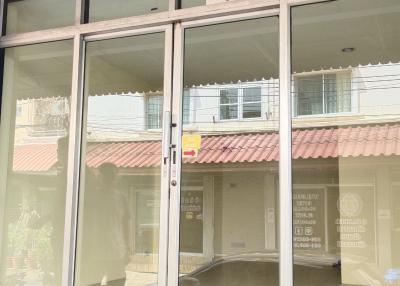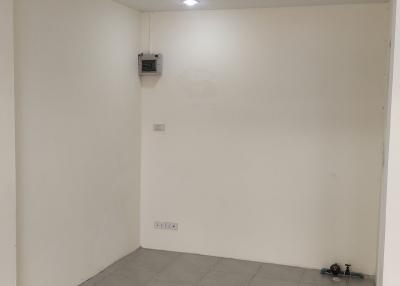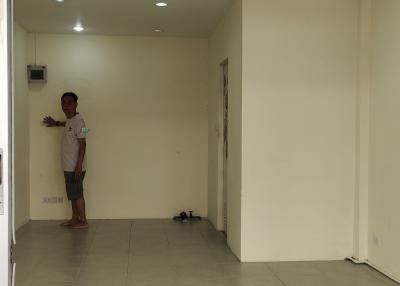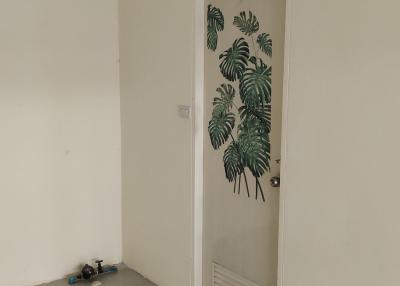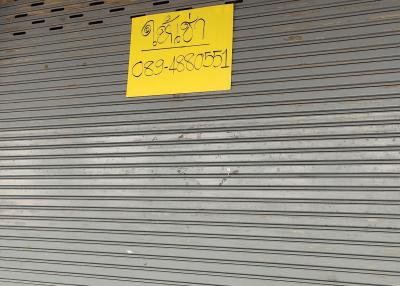Apartments for rent in Thailand
Discover 171 Apartments for rent on Nestopa
-
Save as new search
- Sort by Recommended
- Price
- Bedrooms
- Bathrooms
- Square Meters
Modern Loft Apartment in Choeng Thale, Thalang, Phuket - 80,000 THB Monthly
Thalang, Phuket
Modern 1-Bedroom Apartment for Rent in Choeng Thale, Phuket – Contemporary Living with Natural Light
Thalang, Phuket
Modern 3-Bedroom Apartment with Skyline Views in Khlong Tan Nuea, Bangkok | 350 sqm | High-End Rental
Watthana, Bangkok
Modern 1-Bedroom Freehold Apartment for Rent in Sakhu, Thalang, Phuket – 110sqm
Thalang, Phuket
Modern 3-Bedroom Family Apartment with Private Garden – World Club Land, Nong Khwai, Chiang Mai
Hang Dong, Chiang Mai
1 bedroom condo (90sqm) in Chalong
Mueang Phuket, Phuket
-
Pattaya, Chon Buri
Ruen Ob Oon Apartment – Bang Bua Thong
Bang Bua Thong, Nonthaburi
SR HOUSE Affordable 1-Bedroom Freehold Apartment for Rent in Thepharak, Samut Prakan
Mueang Samut Prakan, Samut Prakan
Modern 1-Bed Duplex Near Beach with Pool Views, Hua Hin
Hua Hin, Prachuap Khiri Khan
Stylish 2-Bedroom Freehold Apartment with Pool View in La Casita Hua Hin
Hua Hin, Prachuap Khiri Khan
1-Bedroom Apartment in Nong Kae, Hua Hin – Resort Living with Pool & Amenities
Hua Hin, Prachuap Khiri Khan
Spacious 4-Bedroom Luxury Apartment for Rent in Lumphini, Pathum Wan
Pathum Wan, Bangkok
Modern 2-Bedroom Apartment for Rent in Khlong Tan, Khlong Toei – Contemporary Living with Rooftop Pool and City Views
Khlong Toei, Bangkok
LTH13049RE – コンドミニアム賃貸 (Condo for Rent) at イメージ49 (Image 49) Size 60 sqm. 1 bed 1 bath Near BTS Thonglor ONLY 60K/Month
Watthana, Bangkok
LTH13050RE – コンドミニアム賃貸 (Condo for Rent) at イメージ49 (Image 49) Size 95 sqm. 2 beds 2 baths Near BTS Thonglor ONLY 90K/Month
Watthana, Bangkok
Best Residence Pracha Uthit 20 Apartment for Rent in Huai Khwang, Bangkok – 1 Bed, Resident-Grade, Secure, 22sqm
Huai Khwang, Bangkok
R22 : Apartment in Thonglor, Watthana, Bangkok
Watthana, Bangkok
Elegant 1BR Apartment in Khlong Tan Nuea - Modern Comfort Meets Convenience
Watthana, Bangkok
Best Mansion Ratchada 72 Modern Granite-Accented 1-Bedroom Apartment for Rent
Bang Sue, Bangkok
N
Lat Krabang, Bangkok
3-Bedroom Apartment with Serene Community Vibes in Sukhumvit Soi 53. A home for you!
Watthana, Bangkok
Newly refurbished minimal style one-bed room for rent only 600 m. from BTS Thong Lor station. Ready to move in now!
Khlong Toei, Bangkok
The Best Place
Mueang Samut Prakan, Samut Prakan
Art @ Thonglor 25: Stylish Urban Living in Bangkok's Vibrant Thonglor District
Watthana, Bangkok
1-Bedroom Apartment for Rent in Rawai, Mueang Phuket
Mueang Phuket, Phuket
Modern 1-Bedroom Apartment in Rawai, Mueang Phuket
Mueang Phuket, Phuket
Affordable 1-Bedroom Apartment in Prime Rawai, Phuket Location
Mueang Phuket, Phuket
About Renting an Apartment in Thailand
Thailand offers a unique and captivating blend of rich cultural heritage, stunning natural beauty, and modern urban life. Renting an apartment here provides an entryway to this vibrant lifestyle without the long-term commitment of buying. From the bustling streets of Bangkok to the serene beaches of Phuket, the options are as diverse as they are plentiful. The affordability and variety of apartments in Thailand make it a popular choice for expatriates, digital nomads, and long-term travelers alike.
Local Vibe
The lifestyle in Thailand is a delightful fusion of traditional and contemporary elements. The local vibe varies from place to place - Bangkok pulsates with energy, offering world-class dining, shopping, and nightlife, while Chiang Mai, with its historical charm and mountainous backdrop, is perfect for a peaceful yet culturally enriched life. Coastal areas like Pattaya and Phuket are perfect for those who prefer a laid-back lifestyle with access to beautiful beaches and water sports. The friendly locals, delicious street food, and colorful festivals add an extra layer of charm to daily life in Thailand.
Housing Landscape
The apartment rental market in Thailand is diverse, ranging from luxurious high-rise condos in metropolitan areas to modest apartments in quieter towns. Prices vary significantly based on location, size, and amenities offered. Bangkok tends to be on the higher end, with more affordable options available in cities like Chiang Mai and Hua Hin. Most apartments come fully furnished with essential amenities, and many buildings feature added conveniences like pools, gyms, and 24-hour security. The rental process is relatively straightforward, with lease agreements typically ranging from six months to a year.
Why You'll Love It
Renting an apartment in Thailand means immersing yourself in a culture that is warm and welcoming. The cost of living is relatively low compared to Western countries, allowing you to enjoy a high quality of life without breaking the bank. The country’s infrastructure is well-developed, making it easy to travel and explore. Moreover, the food is incredible, the weather is delightful, and there are countless opportunities for adventure and relaxation. Whether you are looking for a bustling urban life or a peaceful retreat, Thailand has something to offer everyone.
Frequently Asked Questions:
1. What is the cost of renting an apartment in Thailand?
The cost can vary greatly depending on the location and type of apartment. In Bangkok, a one-bedroom apartment in the city center can cost between 15,000 to 30,000 THB per month, while in areas like Chiang Mai, similar accommodations might range from 10,000 to 20,000 THB per month.
2. What are the typical lease terms for renting an apartment in Thailand?
Lease terms are usually for six months to one year. However, many landlords are willing to negotiate, especially if you are looking to stay longer. Short-term rentals are also available, particularly in tourist-heavy areas.
3. What should I know about utility costs?
Utilities such as electricity, water, and internet are usually not included in the rent and are billed separately. Electricity costs can be high if you use air conditioning frequently, while water and internet are fairly inexpensive, totaling approximately 2,000 to 4,000 THB per month.
4. Do I need to pay a security deposit?
Yes, it is standard practice to pay a security deposit when renting an apartment in Thailand. This deposit is typically equivalent to two months' rent and is refundable at the end of your lease, provided there are no damages or outstanding bills.
5. Are there any legal restrictions for foreigners renting an apartment in Thailand?
There are no specific legal restrictions preventing foreigners from renting apartments in Thailand. However, it's essential to ensure all agreements are clear and preferably written in both English and Thai to avoid any misunderstandings.
Popular locations
Provinces
Cities
Nestopa is the trusted platform to find the best properties and real estate agents in Thailand, including Apartments for rent in Thailand, through a curated network of trusted professionals and verified listings. Each listing includes detailed information, high-quality images, map, nearby places and direct contact with the seller.
Nestopa is built by a team with over a decade of experience creating property platforms in Thailand and Southeast Asia. We understand the local market, work closely with agents and developers, and continuously improve our tools to help you make confident decisions.
Disclaimer:
All property listings are provided by third-party agents or developers.
While we aim to keep information accurate and up to date, availability and pricing can change.
Always confirm details directly with the listing agent.
If you notice incorrect or outdated information, please let us know so we can correct it.
Country
Committed to our startup's home in Thailand


© 2025 NESTOPA. All rights reserved.
Your message was sent successfully
To download the brochure again, Click here

Your feedback means the world to us




































































































